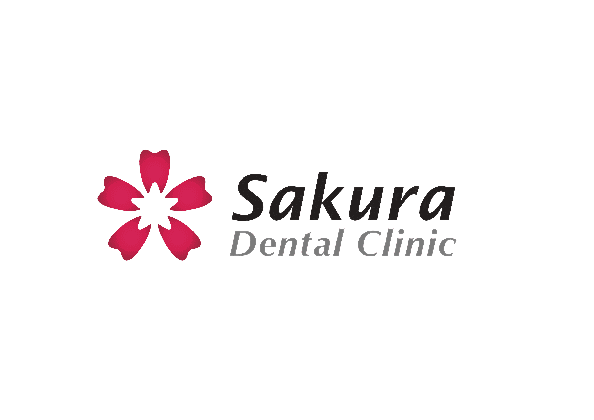
Table of contents
1. What is tooth enamel?
Tooth enamel is the hardest tissue in the human body, covering the entire visible part of the tooth in the mouth. This is the outermost protective layer of the tooth, ivory-white in color and almost transparent. Tooth enamel plays an important role in protecting the tooth from external influences such as temperature, chemicals and chewing force.
Tooth enamel is formed during tooth development and does not contain living cells. This means that when tooth enamel is damaged, it cannot repair itself like other tissues in the body. Therefore, protecting tooth enamel is very important for maintaining long-term oral health.
2. Structure of tooth enamel
Tooth enamel has a special structure, which makes it an effective protective layer for teeth:
- – Main components: Tooth enamel contains up to 96% of minerals, mainly hydroxyapatite – a form of calcium phosphate crystals. The rest consists of 3% of water and 1% of organic matter.
- – Structure: Tooth enamel is made up of millions of tiny enamel prisms, arranged closely together in a certain order. This structure gives tooth enamel high hardness and resistance to abrasion.
- – Thickness: The thickness of tooth enamel is not uniform across the entire tooth surface. It is thickest at the top of the tooth (about 2.5mm) and gradually thins towards the neck of the tooth.
- – Color: Tooth enamel is ivory white and almost transparent. The actual color of the tooth depends on the color of the dentin underneath, which can be seen through the enamel.

3. Function of tooth enamel
Tooth enamel plays an important role in protecting and maintaining tooth function:
- – Tooth protection: Tooth enamel creates a strong protective layer for the inside of the tooth, helping to prevent bacteria from entering and causing tooth decay.
- – Abrasion resistance: With high hardness, enamel helps teeth withstand strong chewing force and protects teeth from abrasion during daily chewing.
- – Insulation: Tooth enamel helps protect teeth from sudden changes in temperature, allowing you to enjoy hot and cold foods and drinks without pain.
- – Acid resistance: Tooth enamel has the ability to resist the effects of acids from food and bacteria in the mouth, helping to prevent tooth decay.
- – Aesthetics: Bright white enamel contributes to the beauty of a smile.
4. Common problems with tooth enamel
Although very hard and durable, tooth enamel can still have some problems:
- – Tooth enamel erosion: This is a condition where tooth enamel gradually wears away due to factors such as brushing too hard, grinding teeth, or consuming a lot of acidic foods and drinks.
- – Tooth decay: When bacteria in the mouth produce acid, it can soften and destroy tooth enamel, leading to tooth decay.
- – Cracked or broken tooth enamel: Tooth enamel can crack or break due to injury or from eating very hard foods.
- – Staining: Tooth enamel can become yellowed or discolored due to smoking, drinking coffee, black tea or red wine.
- – Sensitivity: As the enamel thins, teeth can become sensitive to hot and cold temperatures.
5. How to protect tooth enamel
To keep your tooth enamel healthy, you should take the following steps:
- – Brush your teeth properly: Use a soft-bristled toothbrush and brush your teeth gently at least twice a day.
- – Use fluoride toothpaste: Fluoride helps strengthen tooth enamel and prevent tooth decay.
- – Limit acidic foods and drinks: If you drink, use a straw to limit contact with your teeth.
- – Chew sugar-free gum: Helps stimulate saliva secretion, neutralizing acid in the mouth.
- – Drink plenty of water: Helps wash away food debris and acids in the mouth.
- – Avoid grinding your teeth: If you have a habit of grinding your teeth while sleeping, use a mouth guard.
- – Regular dental check-ups: You should see your dentist at least every 6 months to detect and treat dental problems early.
6. Methods to protect and remineralize tooth enamel
Tooth enamel cannot regenerate itself but can be protected and remineralized.
- – Fluoride therapy: Your dentist may apply a high-concentration fluoride gel to your teeth to strengthen tooth enamel.
- – Tooth filling: For mild cases of tooth decay, the dentist can fill the tooth to protect the remaining enamel.
- – Porcelain crowns: In cases where tooth enamel is severely damaged, porcelain crowns may be the solution to protect the teeth.
- – Teeth whitening: For stained teeth, teeth whitening can help improve the color of the enamel.
- – Calcium and vitamin D supplements: Eating foods rich in calcium and vitamin D can help improve overall dental health.

7. Conclusion
Tooth enamel plays an important role in protecting your teeth and maintaining your oral health. Although it is very hard and durable, tooth enamel can be damaged if not properly cared for. By maintaining good oral hygiene habits, limiting harmful foods, and visiting your dentist regularly, you can keep your tooth enamel healthy and protect your smile for years to come.
If you have any questions about tooth enamel or other dental problems, do not hesitate to send your questions via the 'ASK A QUESTION' section on our website. Our experts will be happy to answer all your questions.
You can also test your dental knowledge by taking the 'DENTAL QUIZ' game on the website. It's a fun way to learn more about dental health and find out things you might not know.



